Love, lost in translation: Madama Butterfly

Oper Leipzig’s staging of Puccini’s 1903 opera Madama Butterfly proved yet again how effectively theatre can enhance music, with imaginative sets, good casting and extremely good acting. The story is (almost too) familiar: a US Navy officer, Benjamin Franklin (!) Pinkerton, hungry to ‘make his own/the flowers of every shore/ the love of every pretty girl’, decides to marry the erstwhile geisha, Butterfly, on a rent-a-woman basis, a contract that he can break at any time. The analogy with rent-a-car wasn’t too far from the stage director’s mind, since the first act begins with a huge car in the foreground behind life-size cardboard cutouts of female models, as in car advertisements – except that in this case, it’s the women that are being sold. Pinkerton (Xavier Moreno) is being advised on his purchase by Goro (Dan Karlstrom), the broker. The perfect tout, Goro literally cashes in on the lax divorce laws of Japan in 1900, where both real estate and women can be had for 999-year leases; his greedy fingers grab Pinkerton’s money, as Butterfly (Karah Son) is bought. Butterfly’s cultural distance from these mores ensures that she completely misunderstands the marriage contract, imagining it to be based on love – a love she vows never to relinquish, despite its being completely lost in translation.
As befits this tragedy of errors, Butterfly exclaims to her friends that she is the happiest girl not just in Japan, but in the world, on her wedding day.
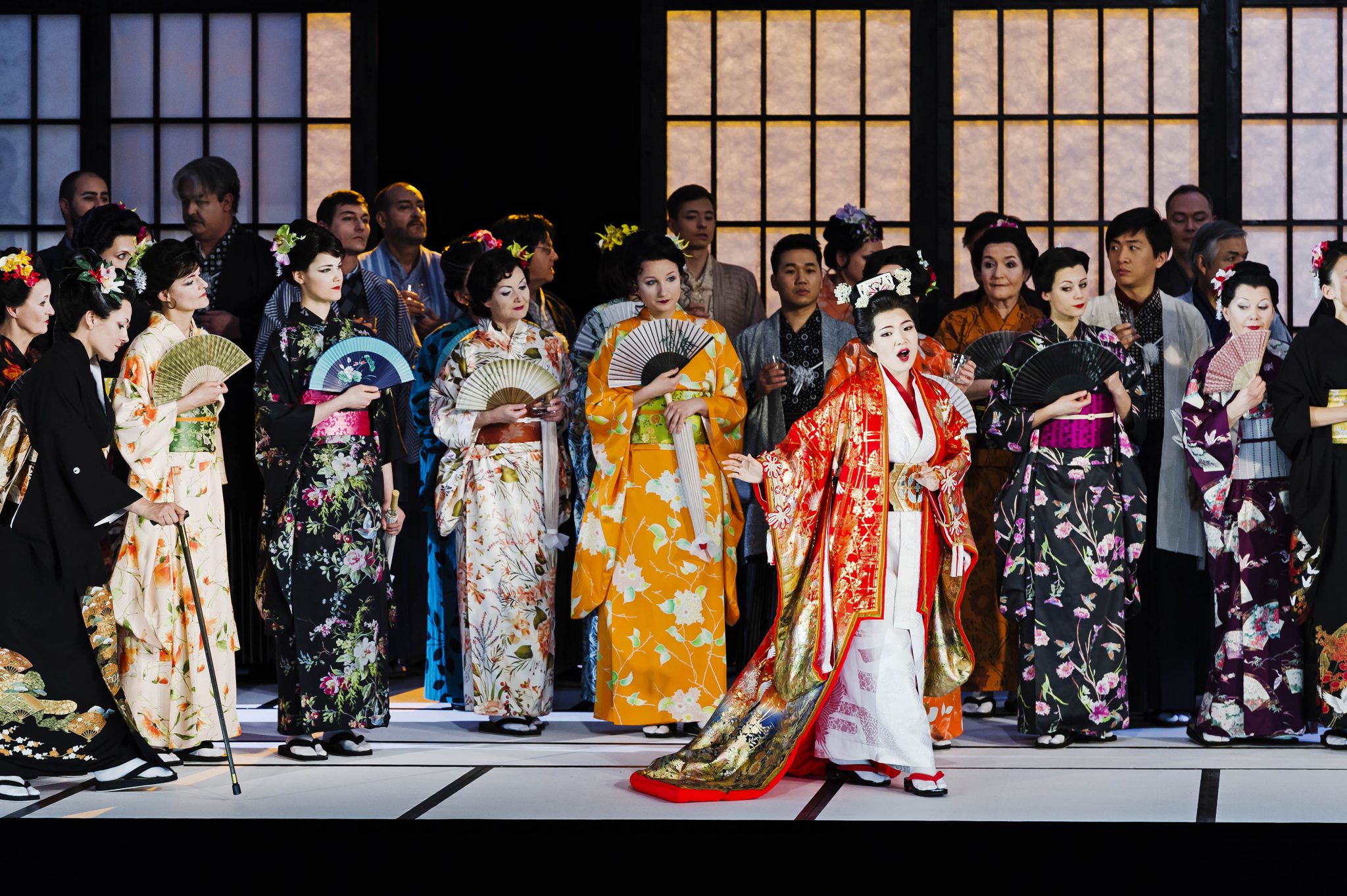
The American consul Sharpless (Jurgen Kurth), aware of Butterfly’s love, warns Pinkerton not to trifle with her feelings, but Pinkerton insists that ‘no great harm’ will be done, and toasts the day when he will get married in ‘real earnest/to a real American bride’. Pinkerton’s lust is his motor, and he is as bored with Butterfly’s entourage as he is with the wedding rituals; indifferent to Butterfly’s revelation of her age (15) and troubled background (a noble family driven to impoverishment by the ordained harakiri of her father), he wants nothing more than to ‘get on with it’, as he and Goro joke about the ceremony over which Sharpless officiates.
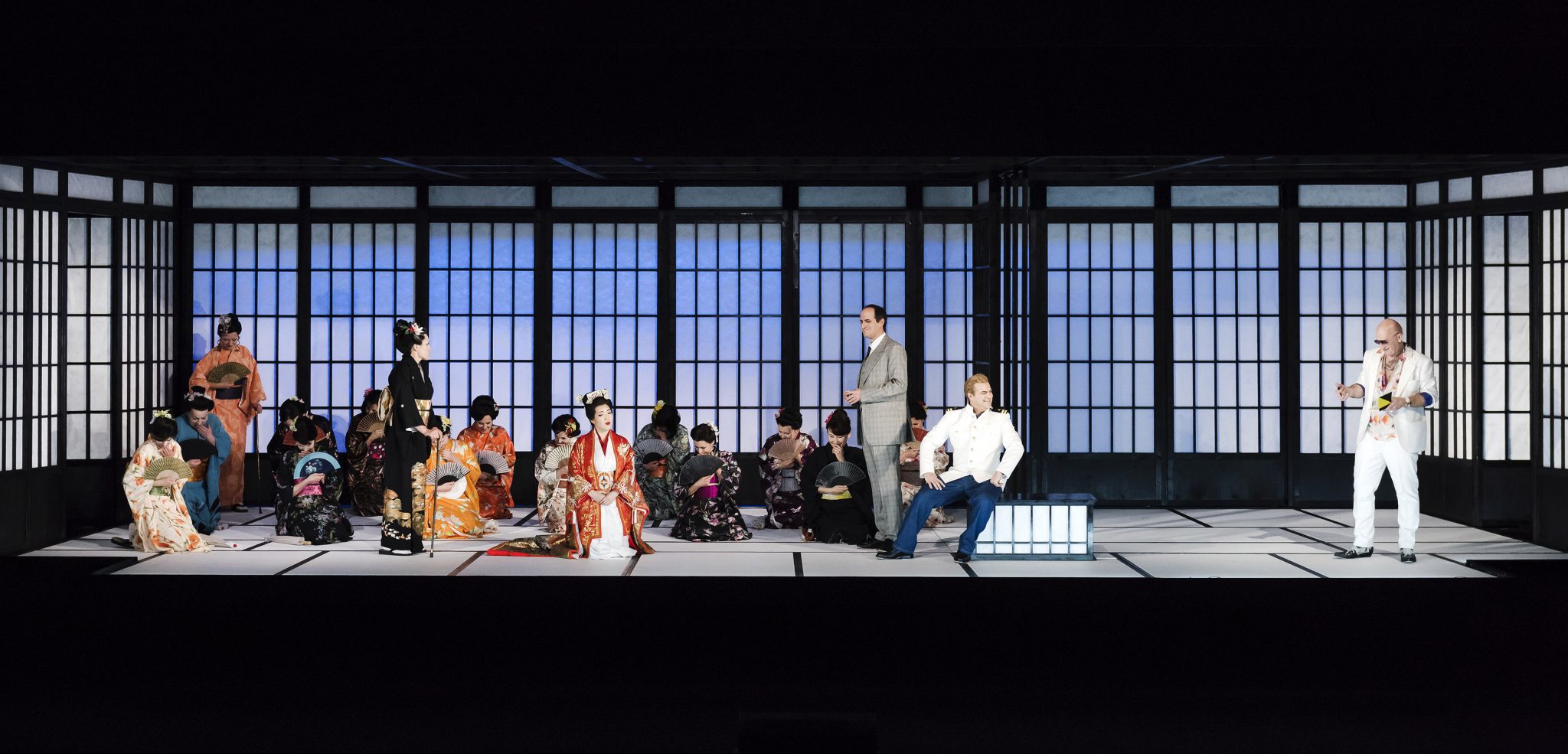
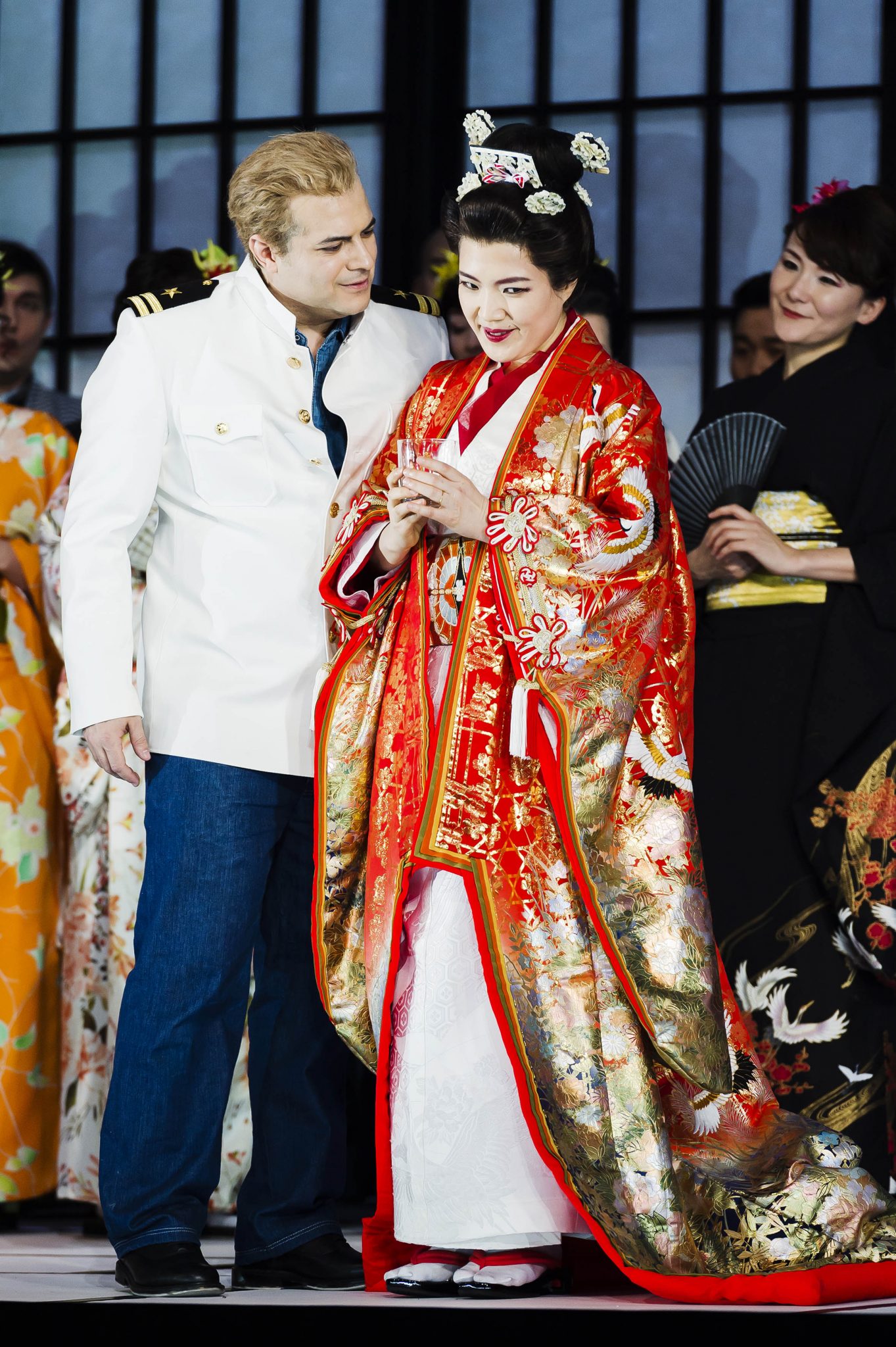
In her (over)drive to please her beloved, Butterfly has converted from Buddhism to Christianity; this rouses the ire of her uncle, a bonze (Randall Jakobsh), who interrupts the celebrations in fury. Cursing Butterfly, he expels her from the clan; their erstwhile jealousy happily transmuted to a new-found contempt, the clan leave, hissing and booing a weeping Butterfly.
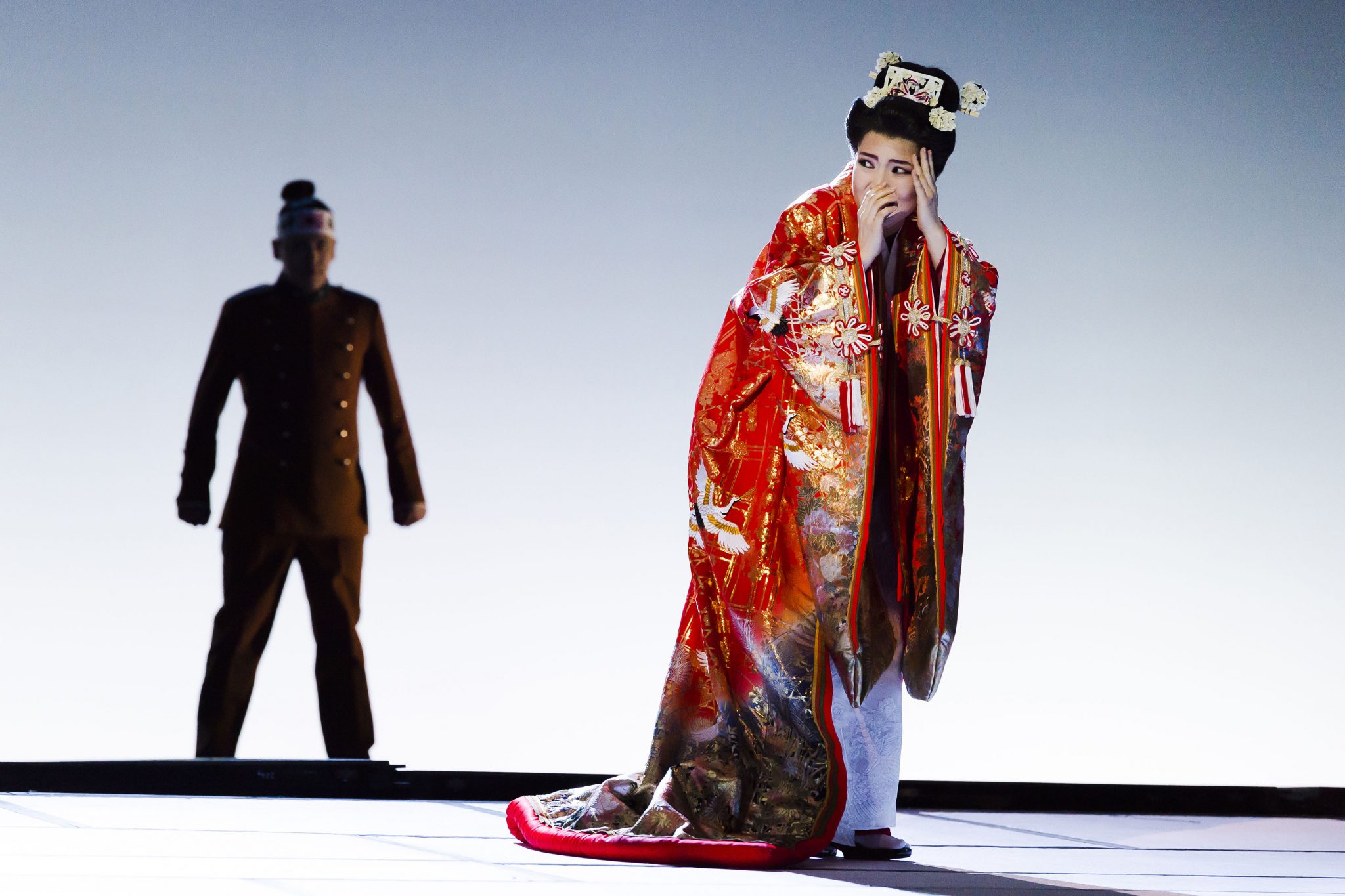
Butterfly is inconsolable, and Pinkerton’s almost real tenderness as he assures her that her tears are worth more than all the tribe who have rejected her, more than all the bonzes in Japan, only serves, unfortunately, to cement her love for him. Ironically, it is the lust-driven Pinkerton who is the first to ask Butterfly to speak her love, even when she says she is too afraid ‘of dying of it’; she speaks her love gently, softly, under a starlit sky (without noticing, of course, that he does not).
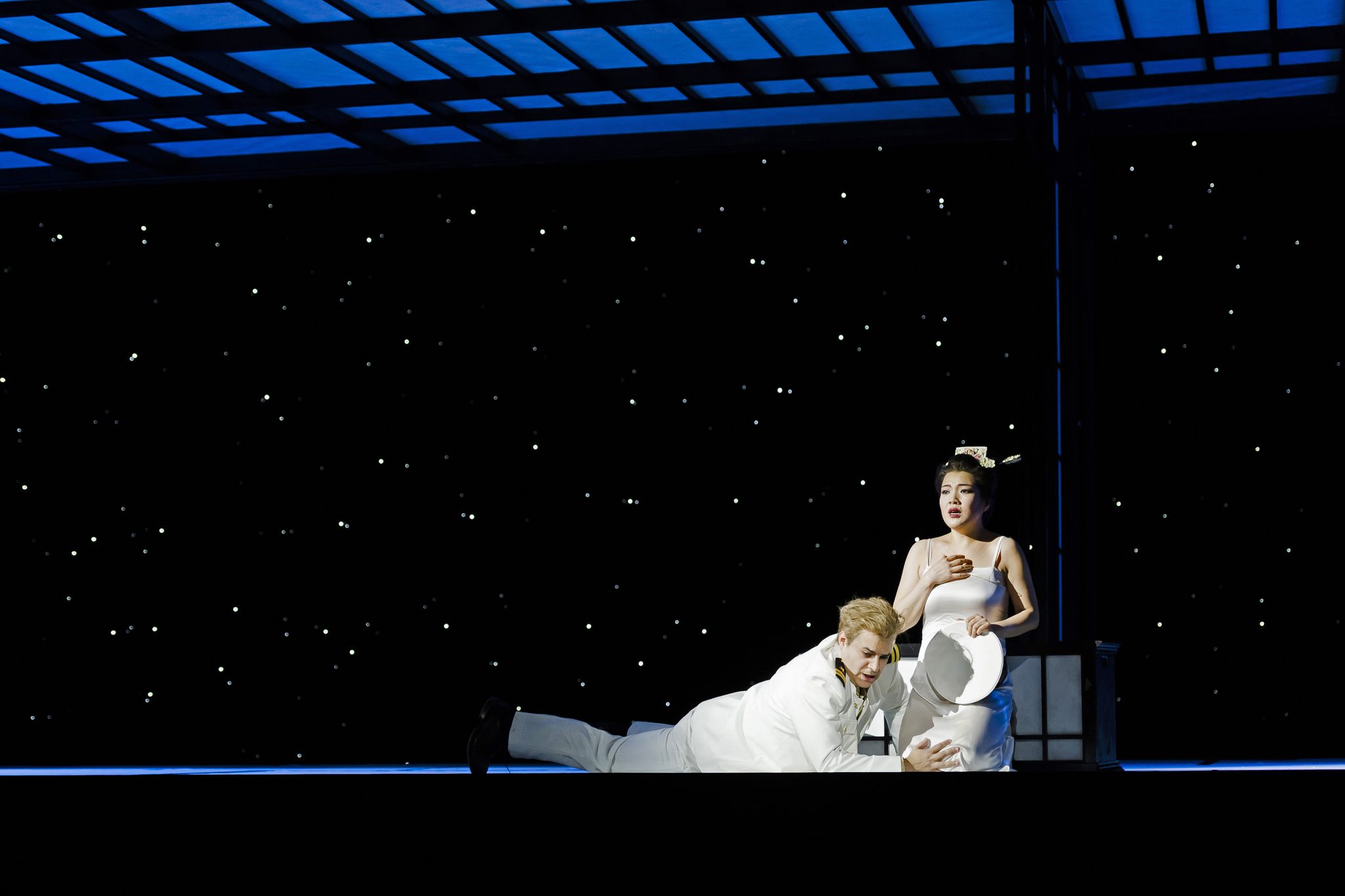
Inevitably, Pinkerton leaves: even more inevitably, he marries an American woman; and just as inevitably, Butterfly stays faithful to him, with tattered maps and photos of America on her walls, an American flag as her bedspread, and her own Western attire, as she waits for his return and muses about their reunion in the ineffably beautiful Un bel di’ vedremo. She refuses to listen to reason; neither her maid Suzuki’s (Sandra Maxheimer) worried remonstrations, nor the tout Goro’s snide insinuations, nor the offer of marriage from a wealthy landowner, nor even the kind-hearted Sharpless’ futile attempts to convey the truth, meet with any success. When Sharpless tries to read out a letter from Pinkerton, Butterfly interrupts him frequently with naive exclamations of love. She asks how often robins nest in America, as it has been three years since Pinkerton left Japan, promising he would return when the ‘robins build their nests again’; perhaps they nest less often there? Furious with Pinkerton, the desperate Sharpless asks Butterfly outright what she would do if he never returned. Shattered, she replies that she would probably take her own life, since as the mother of Pinkerton’s young son, she could not, would not, return to the life of a geisha.
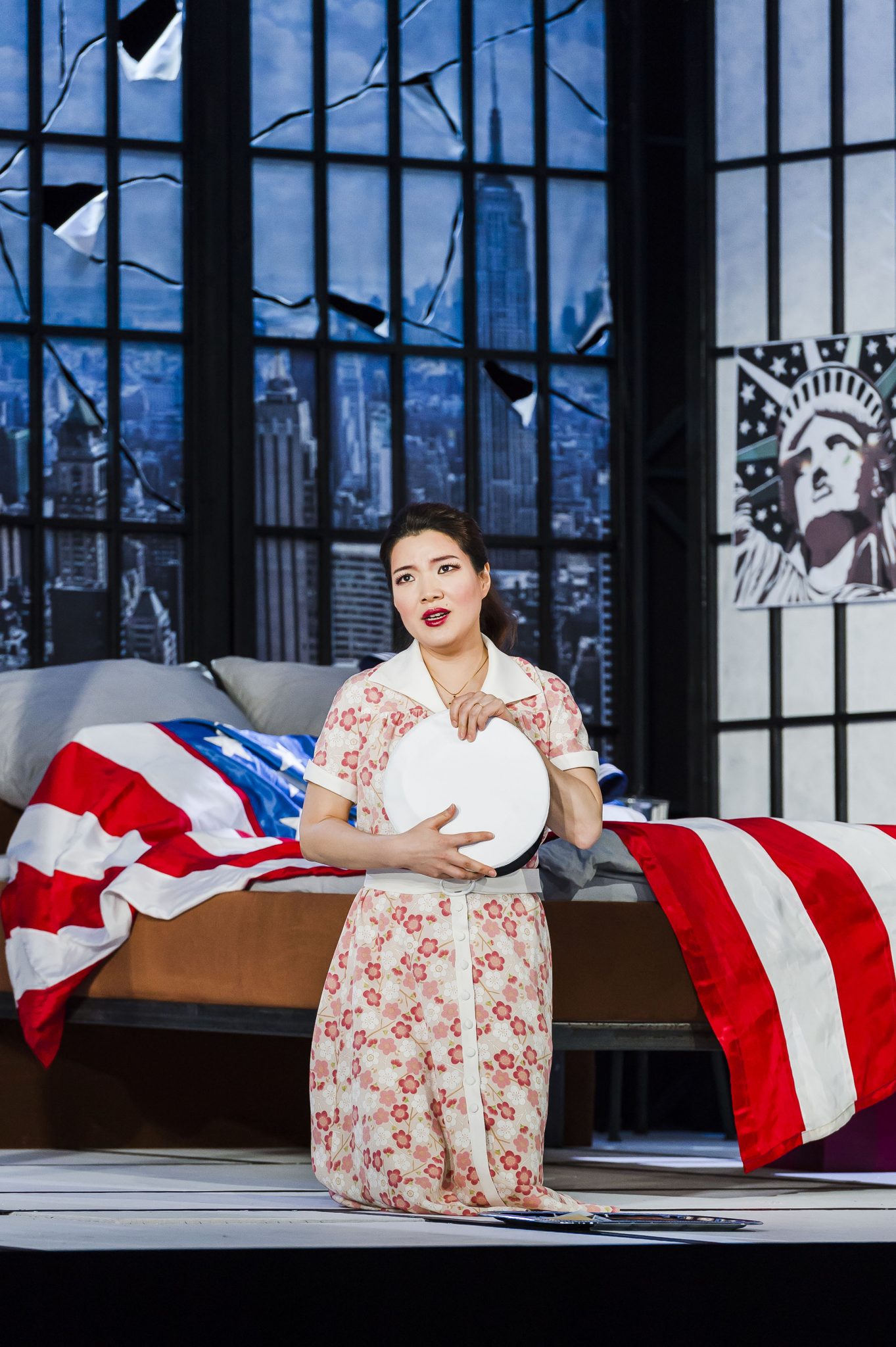
Hope, against all hope, rears its head again when Butterfly sees Pinkerton’s ship approach the harbour; she strews the house with ‘violets and tuberoses, blossoms of verbena’, dresses herself in her wedding kimono, and awaits him all night to the accompaniment of the famous Humming Chorus, until Suzuki begs her to go to bed at dawn. Pinkerton and his new American wife Kate (Lissa Meybohm) arrive, accompanied by Sharpless, with an offer to bring up Butterfly’s young son as their own, in America. Pinkerton is apparently overcome with remorse at the sight of his ‘flowery refuge/of happiness and love’ and, coward that he is, cannot bear to face Butterfly: as ever, the hapless Sharpless is entrusted to deliver his message. When Butterfly awakens to this sad truth, she drives all the adults away; bidding her son a tearful goodbye, she kills herself with her father’s sacred knife, his instrument of suicide. This is when Pinkerton rushes in, with his usual perfect timing.
Oper Leipzig’s sets and mise-en-scene (Frank Philipp Schlossmann and Aron Stiehl) were as wonderfully imaginative as usual: the car in the opening scene gave way as the stage revolved, to a typical Japanese home. As Butterfly’s world began to crumble in the second act, so did her home: first the left half, and then the right, so that the entire house resembled a shipwreck in the final act. The modernising of the plot, with its emphasis on the commercial – from sleazy pairings of cars and women, through Goro’s ‘medallion man’ image complete with shades, gold chains and cellphone, to the use of a television to distract Butterfly’s son while she committed suicide (the original libretto had him blindfolded and playing with an American flag) — gave the opera meaning even in a twenty-first century context.
Christoph Gedschold’s conducting made the music an unobtrusive and yet perfectly equal partner to the singing. Sandra Maxheimer’s full-throated singing of Suzuki made up for a slight woodenness in the acting department; Dan Karlstrom played the pimp Goro to perfection with his cheap swagger and vile snigger. Xavier Moreno’s singing was outstanding, although his robustly unsentimental performance as Pinkerton was more convincing as laddish roue than repentant sinner.
The real star of the show was, undoubtedly, the South Korean soprano Karah Son as Butterfly. Despite a slight warble in the uppermost registers, her singing was immaculate, and her dramatic abilities phenomenal; to the point that her eyes were red with weeping when she took the first couple of rounds of applause after the final act. The repeated curtain calls, from an audience where in turn, there were few dry eyes, were an appropriate reflection of this.





